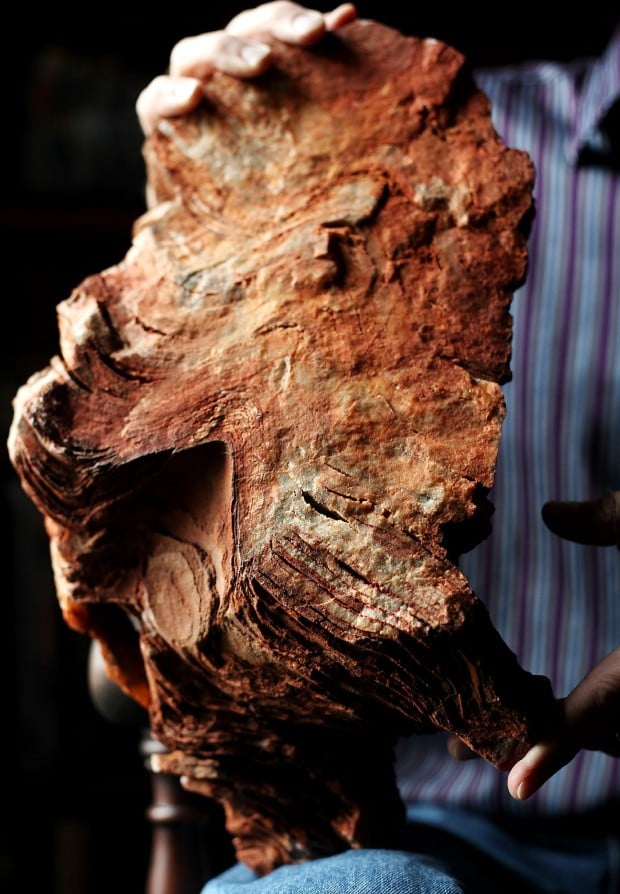UW-Madison researchers take prominent role in search for extraterrestrial life
UW-Madison's Clark Johnson, a geoscientist, has spent years thinking about and studying extraterrestrial life — where we are most likely to find it and what it is probably going to look like. Don't expect little green men.
"When I give talks," Johnson said, "I Photoshop a dinosaur onto Mars' surface. If we saw that, there'd be no doubt about life. But it is a much more cryptic message that we're looking for." Think more along the lines of something growing underneath a rock, or the telltale clues left by something that once grew underneath the rock.
Johnson leads the Wisconsin Astrobiology Research Consortium, a group with scientist members from around the country and world that studies ancient Earth rocks looking for biosignatures — the signs of ancient microbial life. Studying such rocks and the stories they tell provides crucial information that can be used to guide the search for life in the extreme environments of planets other than our own, such as Mars.
It is an important enough task that NASA just approved a $9 million, five-year grant for the project. This is the second five-year grant from NASA and will allow the consortium to follow up on work in which it found evidence of microbial life on ancient Earth that dates back beyond two billion years, prior to the time when the planet's atmosphere contained oxygen. That's important because life on harsh planets such as Mars will no doubt look considerably different because of factors such as the lack of oxygen.
Read more: http://host.madison.com/news/local/education/university/uw-madison-researchers-take-prominent-role-in-search-for-extraterrestrial/article_812abf8a-35d2-11e2-a713-001a4bcf887a.html#ixzz2DGV7z3xw
The search for the rocks that contain these clues takes Johnson to places that might as well be Mars. He's spent lots of time, for example, in remote parts of Australia.... Stashed in UW-Madison's Geology Museum is a 3.5-billion-year-old iron-red chunk of rock from near Marble Bar, Australia, a place so remote it takes a day of travel by four-wheel-drive trucks to get there. It's far from a vacation spot — on average, 180 days out of the year are hotter than 100 degrees, Johnson said.

